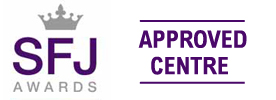Module 13
Allocate Responsibilities
Allocate Responsibilities
The nature of the investigation may allow for certain objectives to be carried out independently of others, insofar as only the completed objective has an influence on the overall enquiry, rather than individual parts. For example, the forensic examination of exhibits is the responsibility of a forensic scientist, and only the result of the examination is of concern to the senior investigator. Therefore, that senior investigator hands over all responsibility for that examination to the scientist, and requires only a date upon which a reported result can be expected.
If there are several areas where the result is more important than the process, it may be in order to completely delegate these areas to specialists so that the overall management can be focussed on pressing issues.
Of course, there are also areas where day to day management involvement is unavoidable. The purpose of allocating responsibility is to ensure that only those activities which require hands on involvement are addressed by investigation managers, and all others are left firmly in the hands of those best able to carry them out.
Identify assumptions
In investigation, most assumptions will be made in respect of legalities. Identifying the legalities can be relatively simple, but should not be overlooked.
For example; if an investigation team assumes that a suspect will be at home when an arrest effort is made, and intending to conduct a search of the premises immediately after arrest (under the authority of the Police and Criminal Evidence Act 1984), goes to that premises to find that the suspect is not in, and that no power to search then exists. Evidence is lost, and a suspect is made aware of the investigation team's interest. Identifying that situation as an 'assumption' means that the investigation team may now decide to seek a search warrant in anticipation of the absence of the suspect. If he is in, all well and good. If he is not, then at the very least evidence will not be lost.
Identification of assumptions also allows for contingency planning. It is for this reason that the presence in the team of an individual whose responsibility (often self imposed) is to ask 'what if?' Should be welcomed, not discouraged. Asking these questions will often identify an assumption as just that, and allow for reconsideration of the task itself, or for alternative scenarios to be considered and catered for.
Progress reporting
In a major investigation, reporting progress is important because it allows for;
- reassessment of the interim objectives;
- reallocation of priorities and resources as situations change;
- review of the need for the enquiry;
- identification of the need for further finance, time or personnel;
- confirmation of the status of the investigation.
The reporting activity is ongoing, insofar as individual investigators will always report progress to an immediate supervisor as a matter of course, but allowance should be made for enquiring that everyone involved has a grasp of the total situation.
It is therefore desirable that time be taken for interim briefing sessions, perhaps daily, perhaps less often. (See the module on Case Management for explanation of the Briefing Model.)
Two types of meeting may be considered - the total team briefing and the management meeting. The management meeting should ideally address only policy decisions, and should always be followed with a synopsis of the policy decisions being made known to the whole team during their briefing. Remember that knowing 'why' something is being done results in improved focus on the part of those doing it.
Consequential to the 'internal' progress reporting at team and management briefings, are situation reports (sitreps). A situation report will be necessary in a large organisation because those outside the team with responsibility for financial and organisational objectives will have to be kept informed as to progress. Such reports can be verbal, but there is much to be gained from putting everything in writing so that there can be no misunderstandings.
In both large and small organisations, or those whose sole task is investigation, then it is the client who needs the sitrep as matter of professional courtesy, and to allow that client to change the objective if that is what they want.
Changing the plan
It is inevitable that priorities will change, and that other investigations and influences will affect the manner in which the major enquiry is undertaken. It is therefore reasonable to expect that the plan will have to change in order to address those effects.
It may be worth considering a complete review of the whole project; or it may be a possibility that the change in plan need only address an interim objective, or a number of individual task.
It is a good idea to rerun the process in the event that a change of plan is needed.
Reporting the result
The finished product will be a final report as to what has been done, what resulted, and what recommendations the investigation team may have made.
Another purpose for the final report is to identify what improvements could be made to the investigation process, for the benefit of future investigation teams.
The final reporting process should therefore include a debrief of the entire investigation team, so that the written version can contain all salient points.
In the civil sector, the report is also a courtesy to the client in respect of the statement of account - the client can see what it was that was paid for.
Page: 4
Module: 13




